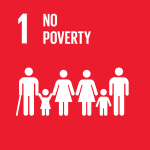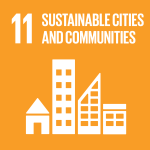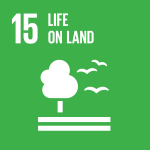
With support from the GEF Least Developed Countries Fund and UNDP, Liberia, Malawi and Rwanda are scaling up nature-based solutions and ecosystem restoration to adapt to climate change.
22 July 2025 – With climate risks escalating across the world’s most vulnerable regions, three landmark adaptation projects in Liberia, Malawi and Rwanda will be starting implementation, supported by the Global Environment Facility (GEF) and UNDP. Taken together, the initiatives aim to strengthen the climate resilience of nearly 800,000 people and bring more than 118,000 hectares of land under sustainable management.
The US$40 million in grant funding, provided through the GEF-managed Least Developed Countries Fund (LDCF), builds on a 2024 GEF Council decision to support the design of these projects in partnership with the respective national governments and UNDP.
With more than US$200 million in co-financing mobilized, the projects represent a major step toward expanding nature-based solutions that improve food and water security. Each initiative features community-led approaches and targeted private sector engagement to foster inclusive, climate-resilient livelihoods.
“We’re proud to partner with the GEF and the governments of Liberia, Malawi and Rwanda to unlock new opportunities and advance cross-cutting, integrated adaptation solutions,” said Marcos Neto, UN Assistant Secretary-General and Director of UNDP’s Bureau for Policy and Programme Support. “Pioneered by local partners, these projects invest in locally led solutions that protect ecosystems, empower people and build economies that can thrive in a changing climate.”
In Liberia, the project will boost resilience among smallholder farmers and fishers by restoring degraded land and coastal ecosystems, supporting regenerative agricultural and fisheries practices, and expanding access to finance and extension services. It will also strengthen sustainable value chains – particularly through ecotourism and climate-smart enterprises – while supporting over 30 micro, small and medium enterprises (MSMEs) to benefit nearly 82,000 people.
In Malawi, the initiative will improve the climate resilience of 28 communities across the Bua River basin by restoring 44,000 hectares of degraded land and ecosystems, reducing flood risks, safeguarding water quality, and supporting climate-resilient agricultural practices and diversified livelihoods. It will directly benefit more than 150,000 people, with a focus on women and youth, to foster sustainable value chains that reduce environmental degradation and enhance food and water security.
In Rwanda, the project will promote ecosystem-based adaptation and climate-resilient agriculture across six districts in the Southern Province. It will bring 25,000 hectares of degraded ecosystems and landscapes under restoration, improve water management, and build the adaptive capacity of over 145,000 people, including women, youth and persons with disabilities. It also supports inclusive infrastructure, sustainable income generation, and private sector-led value chains that reduce emissions and boost resilience.
“These projects are excellent examples of how the Least Developed Countries Fund helps countries move from planning to action," said Carlos Manuel Rodríguez, CEO and Chairperson of the GEF. "By working across sectors and levels, they will strengthen the resilience of people, livelihoods and ecosystems. At the same time, they create space for public-private partnerships that help ensure these efforts are both sustainable and scalable over the long term.”
Each project aligns with adaptation priorities as outlined in the country’s National Adaptation Plans (NAPs) and Nationally Determined Contributions (NDCs) under the Paris Agreement, reinforcing the role of country leadership and ownership in driving climate action.
This milestone underscores the power of partnerships – between national governments, local communities, UNDP, the GEF, and a growing range of public and private partners – to deliver long-lasting, scalable solutions to the climate crisis.
*
About UNDP
UNDP is the leading United Nations organization fighting to end the injustice of poverty, inequality, and climate change. Working with our broad network of experts and partners in 170 countries and territories, we help nations to build integrated, lasting solutions for people and planet.
About the Global Environment Facility
The Global Environment Facility (GEF) includes several multilateral funds working together to address the planet's most pressing challenges in an integrated way. Its financing helps developing countries address complex challenges and work towards meeting international environmental goals. Over the past three decades, the GEF has provided more than $26 billion in financing, primarily as grants, and mobilized another $153 billion for country-driven priority projects.
About the Least Developed Countries Fund
The Least Developed Countries Fund (LDCF) is the only global fund dedicated to helping Least Developed Countries adapt to climate change. Managed by the Global Environment Facility, the LDCF supports locally led solutions across agriculture, water, health, infrastructure, and beyond – strengthening systems, scaling finance, and building resilience where it’s needed most. The LDCF has delivered more than $2.35 billion in grants to date – supporting the transition from incremental to transformational adaptation across 51 countries.





